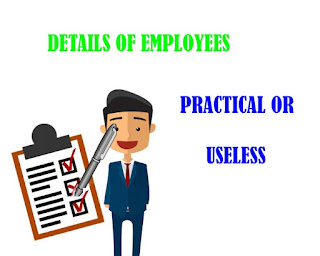Employers sometimes ask people applying
for jobs for personal information, such as their hobbies and interests and
whether they are married or single. Some people say that this information may
be relevant and useful, others disagree
Discuss both these views and give your
own opinion.
It is a common practice today for businesses to seek inputs
from job applicants about their personal realm such as their marital status,
their favorite past-time activities and
inclinations. This idea has gained favors from many, others, however, are quite averse to
this, as they feel such an exercise can do little to help.
Collecting data about job-seekers before interviews is
perceived as highly beneficial. It can
help organizations judge attitudes and skills of the to-be-appointed
personnel much before actually being hired, thereby, enabling selection of
appropriate candidates. For instance, a company looking for people to work in a
team can always determine abilities of a new recruit by assessing his past
involvement in some kind of team driven past-times or sports; thus saving
business invaluable time and money.
Moreover, many a times when organizations are seeking employees
as per the nature and term – long or short – of assignments, they are keen to
know about the family background of applicants. Assessing and screening
information about the families of applicants assists recruiters to determine
whether an employee would fit the scheme of things as per the job requirements.
It has been observed that married people generally shy away from jobs that
embrace certain risks and hazards, while unmarried people do not stay in a job
for long.
However, others challenge the very rationale behind this
practice of collecting details about personal realm of a job-seeker. They
wonder, how can one establish a link
between professional and personal character of an individual by knowing about
interests, hobbies and marital status. Generally, it has been observed, as this
lobby suggests, that people often conceal their real self when interacting in a
professional environment.
In a nutshell, I feel that critics may have their
apprehensions, that does not mean that collecting inputs about prospective
employees is impractical. This policy has been designed after an intensive
research and has generated outstanding results.

